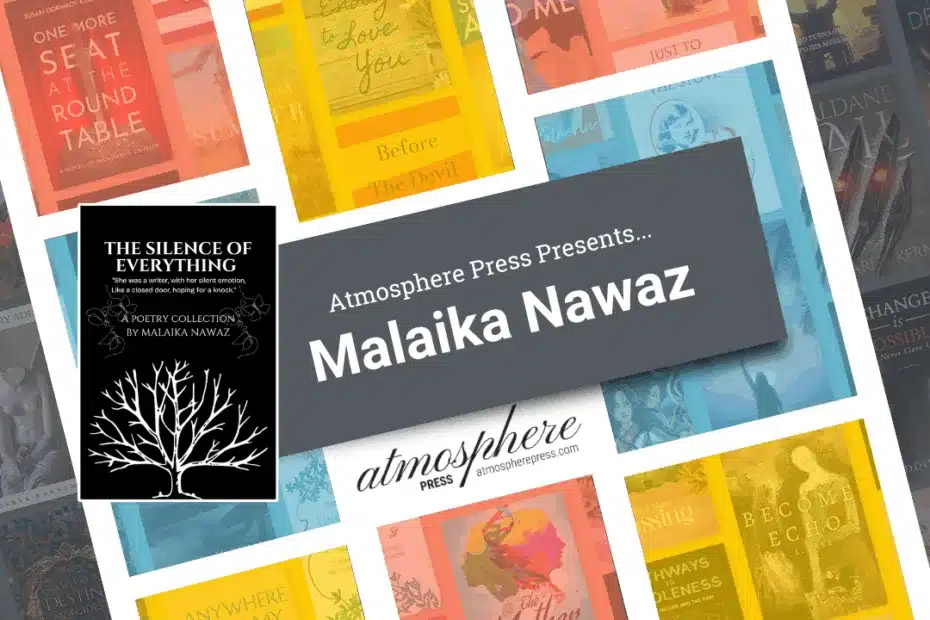An Interview with Malaika Nawaz

Hi, I’m Malaika, an eighteen-year-old author from Pakistan and the proud writer of over ten published books. Writing has always been my passion, and even at a young age, I knew I wanted to tell stories that mattered. My books cover a range of emotions, themes, and experiences—from fiction to poetry—all inspired by the world around me and the thoughts within me. I believe that age should never limit creativity, and through my journey, I hope to inspire other young voices to follow their dreams and write their truth.
Who/what made you want to write? Was there a particular person, or particular writers/works/art forms that influenced you?
Honestly, what made me want to write was the way words made me feel—how they could hold so much emotion, truth, and imagination. There wasn’t just one person, but many little moments that pushed me toward storytelling. I used to observe things deeply—people, pain, silence, even my own thoughts—and I realized I needed an outlet. Writing became that space where I could be fully myself.
I’ve always been inspired by the power of poetry and raw, emotional stories. I admired authors who weren’t afraid to speak the unspoken, to go deep. And sometimes, it wasn’t even books—it was songs, quiet nights, or conversations that lit a spark in me. That’s when I knew writing wasn’t a hobby for me—it was my calling.
What other professions have you worked in? What’s something about you that your readers wouldn’t know?
Apart from being an author, I’m also a dermatology student, which surprises a lot of people! Balancing science and literature might seem unusual, but for me, both are about observation and care—whether it’s understanding skin or understanding emotions.
Something many of my readers might not know is that I also write Urdu poetry. It’s a very personal and emotional part of my creative life. While most of my published books are in English, my heart often finds its voice in Urdu verses—raw, honest, and unfiltered. So behind the writer of books, there’s also a girl who writes quietly in her diary in another language, just for herself.
Tell us the story of your book’s title. Was it easy to find, or did it take forever?
The title of my book actually came to me after a lot of overthinking—like, forever. I knew what the story felt like, but putting that feeling into just a few words was the hardest part. I kept writing, editing, even finishing drafts without a proper title. But then, one night, in total silence, the phrase just clicked.
For example, my book The Silence of Everything wasn’t just a title—it was the entire mood of the story. It captured how silence sometimes says more than words ever could. So once I found the title, everything else made sense. It felt like the story had finally found its name.
What part of publishing your book made it feel real for the first time?
The moment it truly felt real for me was when I saw my name on the cover and my book live online. Seeing it available for people to read—with an actual title, description, and author bio—made everything feel official. It was no longer just a story sitting in my laptop; it was something I had released into the world. That moment made me realize: I’m not just writing anymore—I’m an author now.
If your book had a soundtrack, what are some songs that would be on it?
If my book had a soundtrack, it would definitely be a mix of emotional, soul-touching songs—the kind that stay with you long after they end. Some songs would be soft, reflective, and haunting, just like the themes in my writing.
What’s one thing you hope sticks with readers after they finish your book?
One thing I really hope sticks with readers after they finish my book is the feeling—that quiet ache, that moment of reflection, that sense that someone out there understands what they might be going through.
I want them to remember not just the story, but how it made them feel—seen, heard, or even just less alone. My goal has never been just to entertain, but to connect. If even one line stays in their heart, or they think about a certain scene days later, then I know I’ve done something meaningful.
What was the most rewarding/meaningful part of publishing your book?
The most rewarding part of publishing my book was knowing that my words were finally out in the world, reaching people I’ve never met—and still, somehow, touching them. Getting messages from readers saying, “I felt this,” or “This helped me,” means everything to me.
As a young author, it was also deeply meaningful to prove to myself that I could do it—that my age, my background, or any self-doubt couldn’t stop me. Seeing the impact my writing has, even in the smallest ways, is the real reward.
What creative projects are you currently working on?
Right now, I’m fully focused on writing poetry. I’ve already written and published ten books, so this phase is more personal and emotional for me. Poetry lets me express things in a raw, unfiltered way—it’s like pouring out thoughts I can’t explain in any other form.
I’m not working on a full book at the moment, just writing from the heart, whenever inspiration hits. It feels freeing—no pressure, no structure, just emotions.
Are you a writer, too? Submit your manuscript to Atmosphere Press.

Atmosphere Press is a selective hybrid publisher founded in 2015 on the principles of Honesty, Transparency, Professionalism, Kindness, and Making Your Book Awesome. Our books have won dozens of awards and sold tens of thousands of copies. If you’re interested in learning more, or seeking publication for your own work, please explore the links below.
